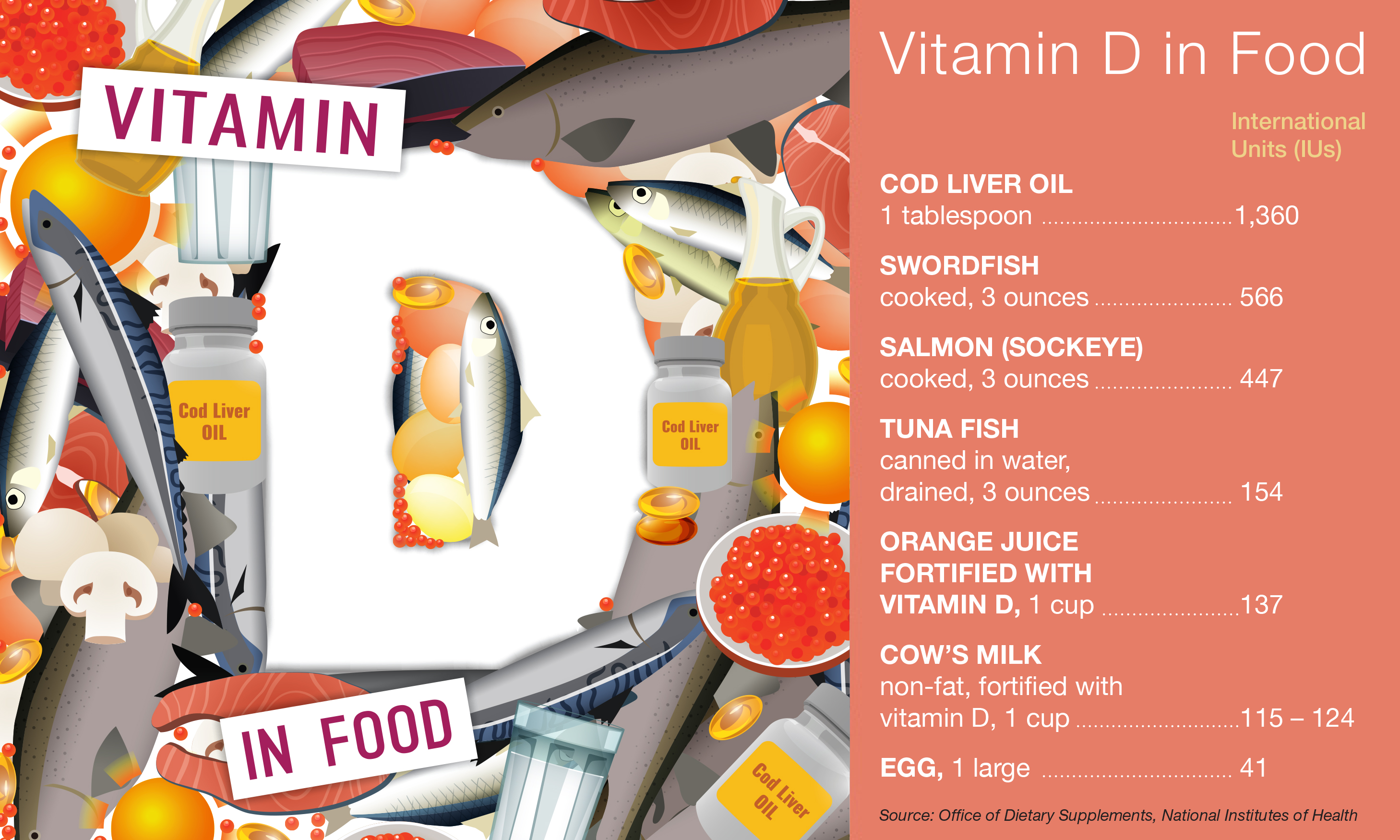When was the last time you had your vitamin D level checked? Vitamin D is a powerhouse nutrient for health. Known as the “sunshine vitamin,” vitamin D is made when your skin is exposed to the sun’s ultraviolet (UV) rays. It can be challenging to get a daily dose if you work indoors or live in a northern climate with minimal sun exposure most of the year. Therefore, chances are your vitamin D levels are low.
Historically, vitamin D has been recognized for its symbiotic relationship with calcium. Vitamin D increases the efficiency of the intestine to absorb dietary calcium, making it critically important for the development, growth and maintenance of healthy bones from birth to old age.
However, research reveals that vitamin D does much more than fend off bone diseases, such as rickets in children and osteomalacia in adults. It’s a special nutrient that does real wonders in the body.
“Let’s start with the reality that vitamin D is not a vitamin. It’s a hormone that has many varied actions in the body,” says Patrick Massey, MD, PhD, MhD, president of ALT-MED Medical and Physical Therapy and former medical director of Complementary and Alternative Medicine at Alexian Brothers Hospital Network.
Some acute and chronic illnesses have been shown to worsen in patients with low vitamin D levels. The reverse is also true: When vitamin D levels are adequate, illnesses can improve. “Low levels of vitamin D increase the risk of infections, heart disease, diabetes, osteoporosis, metabolic syndrome, multiple sclerosis and autoimmune diseases,” Massey explains. Vitamin D deficiency has also been linked with an increased risk of certain cancers.
Vitamin D also affects your DNA, Massey says. Nearly every cell has a receptor on its membrane for vitamin D, and although every cell will do something different with vitamin D, there is a general notion that vitamin D binds to these receptors and is transported into the nucleus of the cell where it plays a role in gene expression.
How much vitamin D should you get?
For many of us, it’s likely that we’re not getting enough vitamin D in our day-to-day life. Sun exposure has gone down as skin cancer protection becomes more of a mainstay, and there are not many foods that naturally contain vitamin D.
“Natural food sources include egg yolks, mushrooms grown in UV light and fatty fish, such as sockeye salmon, canned tuna and sardines,” explains Rachelle LaCroix Mallik, MA, RD, LDN, a Chicago-based registered dietitian and owner of The Food Therapist, LLC, a private practice specializing in nutrition for reproductive health. There are also vitamin D-fortified foods, such as milk, non-dairy milk, orange juice and some yogurt and cheese (check food labels to see if vitamin D is in the product).
“It’s difficult to get enough vitamin D depending on the time of year, [as well as a person’s] skin color, sunlight exposure and use of sunscreen,” Mallik explains. “I recommend most people take a daily vitamin D supplement, especially in winter in Chicago when it’s difficult to obtain enough from sunlight.”
Infants who are exclusively and partially breastfed should get a daily supplemental dose, as breast milk does not contain adequate amounts of vitamin D, Mallik says. She recommends that breastfeeding moms take a supplement with enough vitamin D for themselves and baby or give their infant daily vitamin D drops.
Here’s the kicker: Supplementation with an adequate dose of vitamin D can be tricky since everyone has different needs based on health status and baseline vitamin D levels. With vitamin D having a myriad of other functions besides calcium balance and bone health, varying amounts are needed based on different illnesses. Therefore, the current recommendation of 600 IUs for adults and 400 IUs for children isn’t necessarily adequate, Massey says.
The best — and only — way to correctly dose your own vitamin D needs is by working with a physician to measure levels of vitamin D in your blood, Massey says.
“I have some patients who do not absorb vitamin D very well, and they need to take 50,000 IUs several times a week [to] barely get into the reference range,” Massey says. Although, many physicians are worried about vitamin D toxicity because it’s a fat-soluble vitamin, Massey contends, “[Vitamin D] is not a vitamin, it is a hormone; toxicity is rare.”
Since amounts may differ depending on the individual, consider asking your physician for a blood test to assess your vitamin D level — for the health of your bones and the rest of your body.













